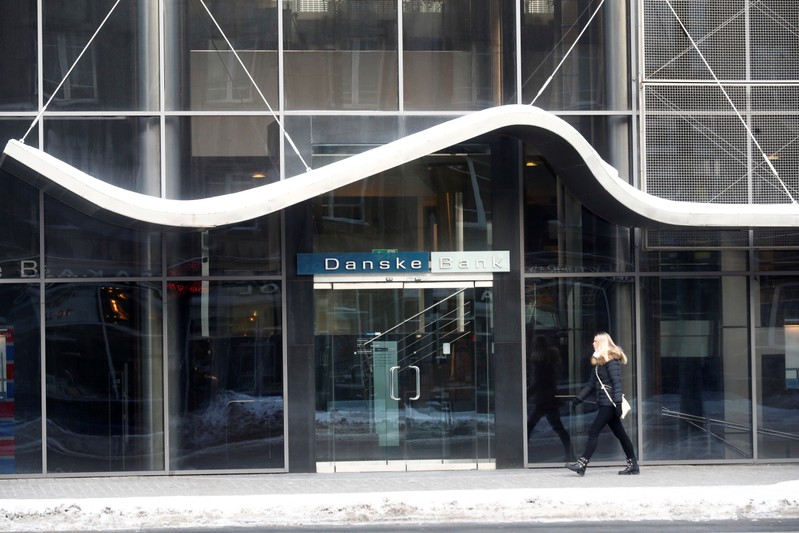
Andrew Herdman, DG of Association of Asia Pacific Airlines (AAPA).
Ramesh Pathania | Mint | Hindustan Times | Getty Images
The ongoing trade war between the United States and China is negatively affecting air cargo demand for Asian airlines, according to the director general of the Association of Asia Pacific Airlines, a regional trade body.
Asian airlines are major players in the air cargo industry and carry almost 40% of global volume, Andrew Herdman told CNBC’s Chery Kang at the International Air Transport Association’s annual general meeting in Seoul, South Korea.
“We’re certainly seeing the effects. We’re not just spectators,” he said. “Year-on-year, we’re seeing negative growth in cargo. We saw growth slowing last year, but now it’s negative year-on-year — that’s been a very weak start to the year.”
The trade war is “rippling out” beyond the U.S. and China, and is disrupting global supply chains in other Asian countries, Herdman added.
Global slowdown
Last week, IATA released data for global air freight markets that showed worldwide demand fell 4.7% on-year in April, continuing the negative trend in demand that started in January. Demand for Asia Pacific airlines fell by 7.4% over the same period — the sixth consecutive month of decline for the region.
Trade uncertainties — triggered by Brexit, as well as tariff tensions between the U.S. and China — contributed to declining new export orders and the weakness is likely to persist in the coming months, according to IATA, the global trade association for airlines.
“Asia is exposed to the consequences of trade war or protectionism because the main traffic flows, in terms of cargo or goods, is within Asia or going from Asia to the rest of the world,” Alexandre de Juniac, CEO and director general of IATA, told CNBC.
Eventually, maybe, there would be an impact given our biggest trading partners are China and the U.S., but we have a free trade agreement with both countries.
Alan Joyce
CEO of Qantas
IATA also slashed its 2019 profit outlook for airlines. It expects profits to come in at $28 billion for the year, a decline from the $30 billion reported in 2018. IATA had previously predicted 2019 profits to come in at $35.5 billion.
The outcome for the second half of the year remains unpredictable, according to Herdman. For Asia Pacific airlines that means having to think about their sourcing decisions and determining if they want to shift the direction of their supply chains and diversify their sources, he said. “It’s very difficult for them because the political twists and turns can make strategic decisions invalid.”
Airlines are also facing other challenges, Herdman added, which include higher fuel prices that are squeezing their margins since most of that cost has not been passed on to passengers.
For one airline in the region, the trade fight between the world’s two largest economies has yet to have an impact.
Australia’s national carrier Qantas is not yet seeing the impact of the trade war, its CEO told CNBC on Monday.
“Eventually, maybe, there would be an impact given our biggest trading partners are China and the U.S., but we have a free trade agreement with both countries,” Alan Joyce said, adding Australia is undergoing sector-specific booms in areas like resources.
He said Qantas was gaining market share and that the leisure market out of Australia was extremely strong.
“Overall, we’re seeing the healthiest revenue environment that we’ve ever had in our 99-year history,” Joyce added.
A silver lining
Despite the negative trends in air cargo, passenger demands are holding steady.
In a separate report last week, IATA said that global passenger traffic demand for April rose 4.3% compared to a year ago. Asia Pacific airlines posted a 2.9% traffic rise in April, up from 2% growth in March but below the long-term average.
IATA’s Juniac said that while passenger demand may not overcome the slowdown in the air cargo industry, it could “compensate the consequences, on the cargo, of the protectionist measures, and of the trade war.”
For his part, Herdman said the passenger side of the airline business is much more positive since the global economy remains in a “reasonable shape.”
There’s still growth in passenger numbers for both long-haul and short-haul as well as for premium and leisure traffic, he said, adding that passengers are still confident.
“They’ve got income. Incomes in Asia are still rising, we’re still seeing growth in demand,” he said. “We expect that to continue, and, it’s not just in Asia, it’s holding out well globally.”
If the prolonged trade war starts affecting consumer confidence in major markets, then there might be “wider repercussions” for the airline industry, Herdman added.

